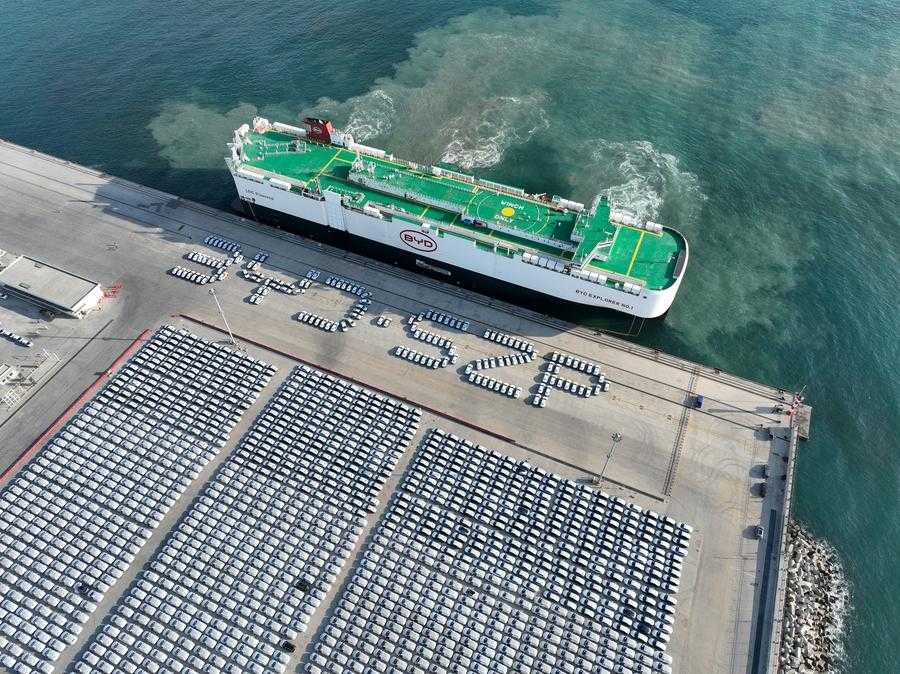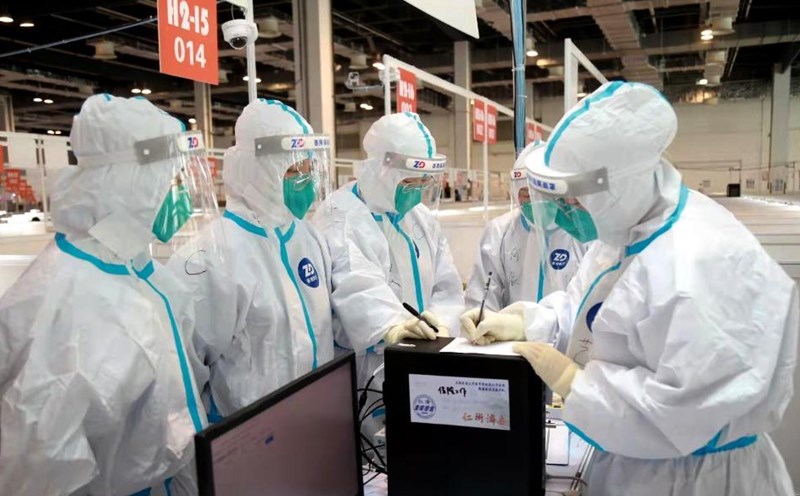SCMP reported that Shanghai Waigaoqiao Shipyard had just handed over a supercar carrying 8,600 vehicles on March 20, after only 200 days of assembly - a record in the shipbuilding industry.
The nearly 200m long ship will be operated by a subsidiary of CosCO, with its first cruise from Shanghai to major European ports such as Bristol (UK), Zeebrugge ( Belgian) and Bremerhaven (Germany).
According to Li Gang, Party Secretary of China Citic Financial Leasing, the owner of the ship, this is an important step forward in the "Chinese cars, Chinese ships" strategy.
The explosive wave of automobile exports has caused Chinese automakers such as BYD, Chery and SAIC to build their own fleets to reduce costs and proactively transport.
Supply chain control helps them avoid a shortage of specialized Ro-Ro (roll on/roll off) trains to transport wheeled vehicles such as cars, trucks, trains or heavy equipment, which are very scarce in the market.

Not stopping at quantity, China also upgraded technology. The new ship has a total floor area of 75,000m2 (equivalent to 11 soccer fields) and can use dual-fuel liquefied natural gas (LNG) and traditional oil, helping to reduce emissions and increase operational efficiency.
In 2024 alone, China exported 6.41 million cars, up 23% year-on-year, making the country the world's largest car importer.
However, the above dominance also makes the US and the West worried. Washington is even considering sanctioning ports receiving Chinese ships as a move to curb Beijing's influence.
With the continuous launch of giant ships, China not only ensures stable car exports but also reshapes the global game in the shipping industry.
In January, the first carrier to be directly ordered by BYD - a new dual-fuel LNG-powered vessel with a capacity of 7,000 vehicles - made its first trip.











